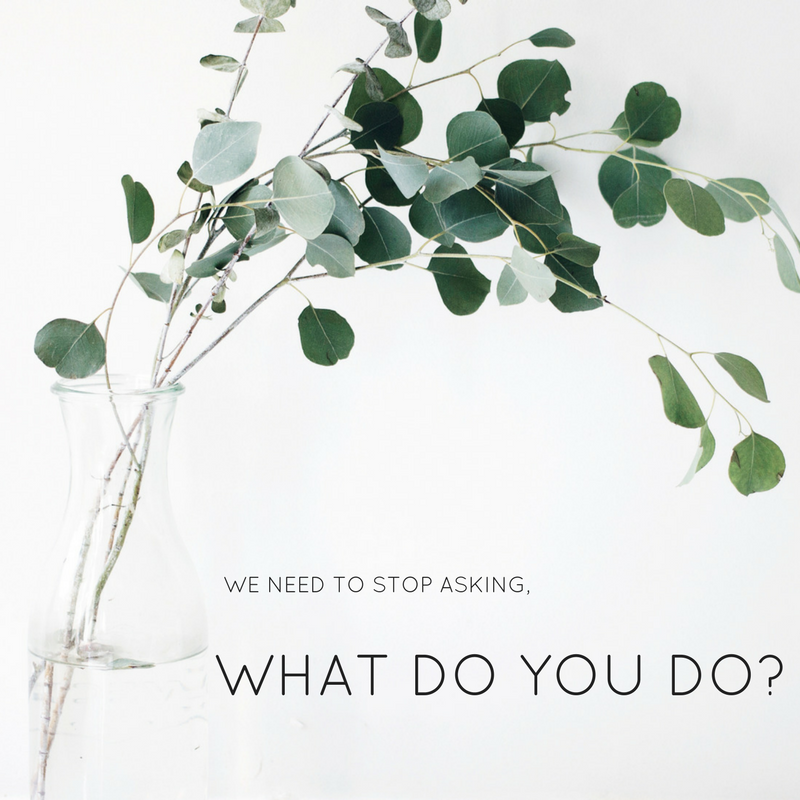What do you do for work?
A commonly asked question when you meet a new person. So common, it's practically automatic.
At various points in my life, I have found myself dreading "What do you do?" I didn't want to talk about work because I was wrestling with pride in my work, or was figuring out my next step. Fast forward a number of years and I'm now thinking of a whole slew of reasons we need to ditch this question.
Lately, when I notice myself slipping into the stranger-handshake-small-talk routine, I have been pulling out some new tricks. Before I share the details, I want to unpack WHY this question can be problematic.
why we should stop asking this question
1. It communicates that you are going to form your perception based on a job title.
We are so much more than our job title. How we spend our days, who we work for, the role we currently hold is informed by so many factors - far more than we can explain in quick social chitchat.
Have you ever considered that when we ask the question, "What do you do for work?", it's our selfish impulse to make sense of the person in front of us? The subtext of this question is,
"I want to know what you do for work so I can piece together my understanding and perception of you."
We can agree that we don't want to be limited by our job title and it does not explain who we are or what we do.
2. This question can make people feel shitty about themselves.
If you think nothing of whipping this question around the cocktail party circuit, I urge you to consider the person who is currently underemployed, unemployed, or the friend who hates his job but feels stuck because it is needed to pay the bills.
A lot of people resist this question because they do not want to be limited by their current job description.
3. A job title does not explain what we actually DO.
The question, "What do you do?' assumes that we can figure someone out by knowing their job title. Pulling a few job titles out of a hat,
Oh, you're a Project Manager. Got it. So you're organized, have a team of people who report to you, and have proven you can execute on quarterly deliverables. Nailed it! *Flips hair*
Oh, you're a Policy Advisor. Okay, so you work in a cubicle and are really only busy just before the publication of the Federal Report. I know your type. *Smirk*
Catch my drift? It's unfair and untrue. And often completely useless.
What to ask instead
I invite you to try asking a different question. Consider this rephrasing what you actually want to know about the stranger in front of you - their motivations, hobbies, personality and attitude.
A few I've tried include:
"What's been your mind lately?"
This question leaves room for people to respond with what has truly been distracting them - an upcoming trip, new apartment, etc.
"What have you been working on recently?"
This question is an invitation for people to share what actually goes on in their work day, or opens the question up to projects and hobbies outside of work.
"What do your days looks like?"
This question creates opportunity to share (or not) how they choose to fill their days. Maybe you'll learn that they are training for a half marathon or caring for a neighbour's pet. You won't know until you ask!
By no stretch of the imagination am I claiming to have figured the perfect alternative question to "What do you do for work?" I play around with the questions above, ad-lib when I feel creative, and have only received a few blank stares. ;)
Regardless of how it goes, asking a different question calls on us to be present, remain curious, and respect the possibility that the person in front of us do not want to be asked,
And what do you do?




